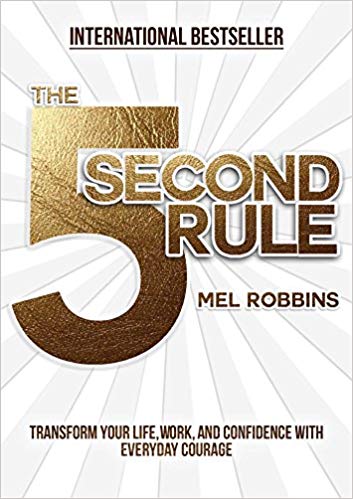Did you know that Warren Buffett, aka one of the world’s wealthiest people, had public speaking anxiety?
And you know what? He found a way to conquer that fear. When faced with the daunting challenge of explaining and teaching investing principles to people older than and even twice his age, he found a way to force himself to master public speaking. Now, people hang on to each word he says.
Do you want to achieve the same results? Stayed tuned for the advice that may change how you give out speeches!
Practice
Our first tip to getting over your fear of public speaking for once and for all is this: practice. And we don’t just mean practice memorizing and rattling off the speech you have prepared. Approach this in a more logical way.
Practice in front of a mirror and watch how your facial expression looks, what your gestures are like; keep an eye on your body language, and just as if you’re talking to someone else, pay attention to whether you look welcoming or not.
Our goal here is to achieve a calm demeanor and to be in control of yourself while speaking. Being afraid of your audience– and by the extent, giving a speech– and fretting about all the bad things that could happen is a self-fulfilling prophecy. To break the cycle, practice to get all that nervous energy out before you have to the actual speaking to a live audience.
Speaking of, well, speaking, to master the art of powerful storytelling and to gauge what your flaw may be, try to record yourself speaking on your phone or on a camera.
We’re talking from start to finish. Record your speech, then listen to it. You’ll be able to pick out what you want to improve, where your strong points are, and even if it’s something as simple as figuring out you need to raise your voice more, now you have a warning.
We know that listening to the sound of our own voices recorded can be cringy, but that makes it even more important to get used to your own voice.

The 5 second rule
by Mel Robbins
⏱ 15 minutes reading time
🎧 Audio version available
Practice With Someone You Know
This technically falls under the category of practice, but here’s the difference. When you practice on someone else, whether that be your friend, a member of your family, or even your dog– if you want to feel extra positive about your confidence, we recommend practicing your speech on your dog!
But anyway, pets aside, when you do this, you open a window for that person to critique your speech– and that’s good! We want that. We want not to be caught off guard during the actual things. And if you do get caught off guard, this exercise helps you think on your feet.
The feedback you get will give you experience. And encourage that person to ask you questions about your speech because it’s likely that your audience will have similar or the same questions.
And here’s an additional tip! When you want to relax and get ready for a speech, consider turning or dimming the lights. There’s a reason comedians prefer dimly-lit spaces. This reduces anxiety and helps people feel more concealed.
Choose a Topic You Care About
It goes without saying that to master public speaking, having a great topic launches you halfway there to giving a great speech. So pick something you care about. And not just that, but a subject that you can passionately speak about from the heart and is something you feel like people could benefit from.
You’ll be more comfortable and on familiar grounds, as you’re deep in your element. And since you’re so comfortable with this subject, if you do get lost or get asked a question, you’ll be able to bounce back quickly.Speaking of this, prepare before a speech by considering what questions you may get asked and have your answers ready.
About Your Presentation
This is a valuable tip that goes a long way, so listen carefully.
Never memorize your speech word for word. Experienced public speakers only memorize key points and have prompts prepared as well as examples.
There’s an Ernest Hemingway saying that goes like, “In order to write well, you must know ten words about the subject for every word that you write. Otherwise, the reader will know that this is not true writing.”
This also goes for public speaking. And it makes you look brilliant as well! And instead of just ten words for each word in your speech, why don’t we bump that number up to 20 or 50? Then the audience will know you understand what you’re talking about.
What to Lead With
Starting your speech with a bang preps the audience for you and makes you even more likable! Now, how to start a speech strong? Try leading with a question or do a variation of a story of a puzzle.
When you open your speech with a question or a puzzle, it forces the audience to think and linger on the idea rather than the speaker. See, now, they’re too busy to judge. And if you choose to lead with a story, the audience focuses on the narrative and the plot and characters instead of focusing on the storyteller!
Breathe
Breathing exercises are a lifesaver when you perform them right. Focusing on your breathing is wildly beneficial, and it’s severely underrated.
Before you get on the stage or step up to the podium, take one deep, slow breath. Then another. Calm yourself and lower that racing heartbeat.
And hey, when you focus on your breathing, your voice may end having more resonance. In the end, you’ll appear collected, more relaxed, and your speech will resound powerfully with your audience. And you won’t speak too fast or too slowly if your breathing is regulated.
Don’t Ignore Your Audience
This is beyond just saying the words of your speech. To fully conquer your fear of public speaking, you need to face the music instead of ignoring your audience.
Nervous speakers often try to ignore the audience, but not only does this potentially make you less engaging, but you won’t notice it when people seem interested in what you’re saying! Or if they have questions that may help you.
And guess what? When you ignore your audience and have zero communication with them, you’ll eventually fall back on focusing on your nervous thoughts. And we all know that if you’re a nervous speaker, your thoughts can turn very negative and fearful.
You never know; looking into the eyes of someone interested in what you’re saying can transform your energy and make your nerves go away.
Make Eye Contact
This goes beyond ignoring the audience. At this point, you’re trying to engage them, but you may be going at it the wrong way. One of the most common and biggest mistakes public speakers can make is speaking to the audience as a group, as just a mass. They look over the room, skim over everyone at once, and don’t connect with a single soul.
When you give a speech, you’re supposed to connect with each person as an individual. So speak to them as individuals! This is where the eye contact part comes in.
Plan it ahead like this: for each thought or each full clause, maintain eye contact with just one person– then move on. This way, you’ve connected with each individual and made them feel special.
The more you practice this, the less nervous you’ll feel. And if you want to lessen your fear or nervousness and try to look for the people at the far ends of the room. Those people probably feel like they’re standing on the outskirts.
So when you engage with them, hold eye contact with them, acknowledge them, your likeability levels skyrocket! Your speech will be memorable because of your kindness and attempts at inclusions.
Don’t Be Afraid of a Little Silence
What’s your worst-case scenario of public speaking? Forgetting what you’re saying? Can you feel your mind going blank and see the audience’s expressionless faces staring back at you?
We won’t minimize your anxiety by saying it’s all in your head. In truth, on the stage and in the seats below, your moments of blankness isn’t the eternity you have imagined. It’s just a few seconds. And guess what? The audience probably doesn’t mind.
Just take a few deep breaths. You’ve got this.
Don’t Try to Calm Down
Yes, we just said try not to calm down. This method was tested by a Harvard professor (Alison Wood Brooks, if anyone’s curious).
The subjects of this method were asked to give a public speech, and when told they would be evaluated by a committee and filmed by videotape, of course, people grew nervous.
When asked about their strategies, over 90% said their best strategy was to calm down. Only those people ended up giving speeches that were found lacking– engagement and confidence-wise.
So what can we do instead of trying to calm down? Instead of saying, “I am calm” to yourself, try to hone all that nervous and extra energy that you have and think, “I’m excited.”
Anxiety is already a consuming emotion, and telling yourself that you’re “calm” may make you feel under pressure. So channel those intense emotions and convert them into another similar strong emotion like excitement. And now, you’re ready for your public speech!
What Is Snapreads?

With the Snapreads app, you get the key insights from the best nonfiction books in minutes, not hours or days. Our experts transform these books into quick, memorable, easy-to-understand insights you can read when you have the time or listen to them on the go.


